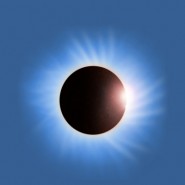 Placebo
PlaceboBattle for the Sun
Score: 63
Battle for the Sun is Placebo’s newest and sixth full-length. As expected of a band formed around fifteen years ago, Placebo has solidified its sound, and Battle for the Sun carries the heavy, distorted guitar lines, dense, often complex drumming, and of course, the harsh voice and biting lyrics that have been present since Placebo’s first, self-titled album. But a comparison of Battle for the Sun’s cover art with that of any older Placebo album yields a fairly accurate description of their newest work: bland.
Most of Battle for the Sun is incredibly repetitive or simply dull, but the album does contain some interesting sections. The drum line of the title track accompanies an extremely simple but somehow powerful guitar line, and provides a detailed point of interest on which the track focuses while Molko repeats as many one syllable words as possible. The following track, “For What It’s Worth” demonstrates Molko’s versatility by juxtaposing a flowing vocal line with the completely constant, repeating title line. Later, on “The Never-Ending Why,” cheerful bells play in complete contrast to Molko’s bleak lyrics. While the album as a whole may not be an incredible demonstration of ingenuity, there are still a number of quite successful tracks.
Battle for the Sun is, as expected, filled with Brian Molko’s unmistakable tones - always a bit sharp but never quite shrill or strained. Though Molko’s vocals manage to avoid becoming irritating (for the most part), they do suffer from too constant a pattern of emphasis, such that there are very few surprises in the way his voice develops over the course of any given song. Though the tracks themselves certainly vary, this creates a constant thread through the album which would have benefited from some variation. Nevertheless, Molko has retained his characteristic energy, and so it is still more rewarding than trying to listen to him.
Placebo has filled Battle for the Sun with the same sort of thought-provoking lines strewn with occasional nonsensical imagery that have distinguished its earlier work. Beginning with the oddly romantic “Kitty Litter,” on which Molko sings of needing “a change of skin” and of loving a “Batsheba of my choosing” and moving on to the failed love of “Ashtray Heart,” where the Spanish interspersed among the English lyrics lends the track remarkable vigor, Battle for the Sun certainly has lyrical merits, especially in the rather dark metaphors Placebo is so skilled at drawing.
However, at the same time, Battle for the Sun suffers greatly from constant lyrical repetition. “Battle for the Sun” and “Devil in the Details,” in which the titles are repeated incessantly throughout the tracks, are perhaps the worst offenders, but almost every track has a level of repetition which goes beyond the creation of a lyrical pattern and into (or at least near) monotony.
The largest, most apparent element on Battle for the Sun is clearly repetition, and it pervades every element, including guitar, lyrics, drums, and vocals. The repetition is also not contained within a single section, such as with a guitar line extended for longer than desirable or a few words repeated beyond their limit: even on the tracks that have multiple, completely unique sections, those sections often occur more than one too many times. In the end, no matter how interesting initially, any specific part of Battle for the Sun will almost invariably be repeated enough to become an annoyance.
Battle for the Sun contains the essence of a good album - interesting lyrics sung by an appropriate voice, well-used instrumentals, and good sound. Where it fails, then, is with the repetition of each of these elements throughout the entire album. What’s innovative once is generally not the second or third time, and Placebo seems to have forgotten this. Accordingly, Battle for the Sun simply doesn’t measure up to Placebo’s earlier work, especially their last album, Meds. Nevertheless, the potential in Battle for the Sun places it at a level above a good deal of directionless music. As such, Battle for the Sun is above-average - but not by much.